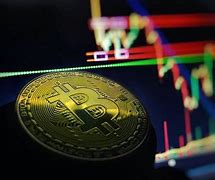Understanding Tokens in Crypto: A Comprehensive Guide
In the world of cryptocurrency, tokens play a crucial role in facilitating transactions and powering decentralized applications. However, for newcomers to the space, the concept of tokens can be confusing and overwhelming. In this article, we will break down the basics of tokens, their different types, and how they work in the context of blockchain technology.
What are Tokens?
In the simplest terms, a token is a digital representation of an asset or utility on a blockchain. Tokens can represent anything from cryptocurrencies to real-world assets like gold, property, or even artwork. They are created, issued, and managed through smart contracts on a blockchain platform, typically Ethereum.
Types of Tokens
There are several types of tokens in the crypto ecosystem, each with its unique properties and use cases. The most common ones include:
Utility Tokens:
These are tokens that provide users with access to specific products or services within a blockchain ecosystem. For example, the BAT token is used to reward users for viewing ads on the Brave browser.
Security Tokens:
These are tokens that represent ownership of a real-world asset and are regulated by security laws. Security tokens typically offer investors a share of profits or dividends from the asset they represent.
Payment Tokens:
These are tokens that function as a medium of exchange, similar to traditional currency. Bitcoin, for example, is a payment token that can be used to buy goods and services.
Governance Tokens:
These are tokens that allow holders to vote on decisions related to a blockchain project's development and management. Governance tokens typically reward holders with a say in project decisions and a share of profits.
How Tokens Work
Tokens are created through a process called Initial Coin Offering (ICO), where a blockchain project raises funds by selling tokens to investors. Once the ICO is completed, the tokens are listed on cryptocurrency exchanges, where they can be traded for other tokens or cryptocurrencies.
Tokens are stored in digital wallets, which are similar to bank accounts in the traditional financial system. These wallets allow users to send and receive tokens, check their balances, and manage their assets.
Tokens on blockchain platforms operate on a decentralized network, which means that transactions are validated and recorded by a distributed network of nodes instead of a central authority. This ensures the security, transparency, and immutability of the token transactions.

Advantages of Tokens:
Increased Liquidity:
Tokens provide a high level of liquidity as they can be easily traded on cryptocurrency exchanges, allowing holders to quickly convert them to other assets or fiat currencies.
Accessibility:
Tokens are accessible to anyone with an internet connection, allowing for increased financial inclusion and democratization of access to financial products and services.
Programmability:
Tokens can be programmed with smart contracts, allowing for the automation of complex financial transactions and the creation of decentralized applications.
Security:
Tokens operate on a decentralized network, making them resistant to hacking and fraud attempts. The use of cryptography also ensures that transactions are secure and private.
Disadvantages of Tokens:
Volatility:
The crypto market is highly volatile, and token prices can fluctuate wildly, leading to significant gains or losses for holders.
Lack of Regulation:
The regulatory landscape around tokens is still unclear in many jurisdictions, leading to uncertainty and potential legal risks for investors.
Complexity:
Tokens operate on a complex technical infrastructure, requiring a high level of technical knowledge and expertise to understand and navigate.
Lack of Adoption:
Despite the growing popularity of tokens, adoption rates among the general public and traditional financial institutions are still low, limiting their potential impact.
Conclusion
Tokens have revolutionized the way we think about money, ownership, and the exchange of value. They have enabled a new wave of decentralized applications, providing users with greater control and ownership of their assets. As the crypto ecosystem continues to evolve, it is crucial to understand the role and function of tokens in powering this new digital economy.
